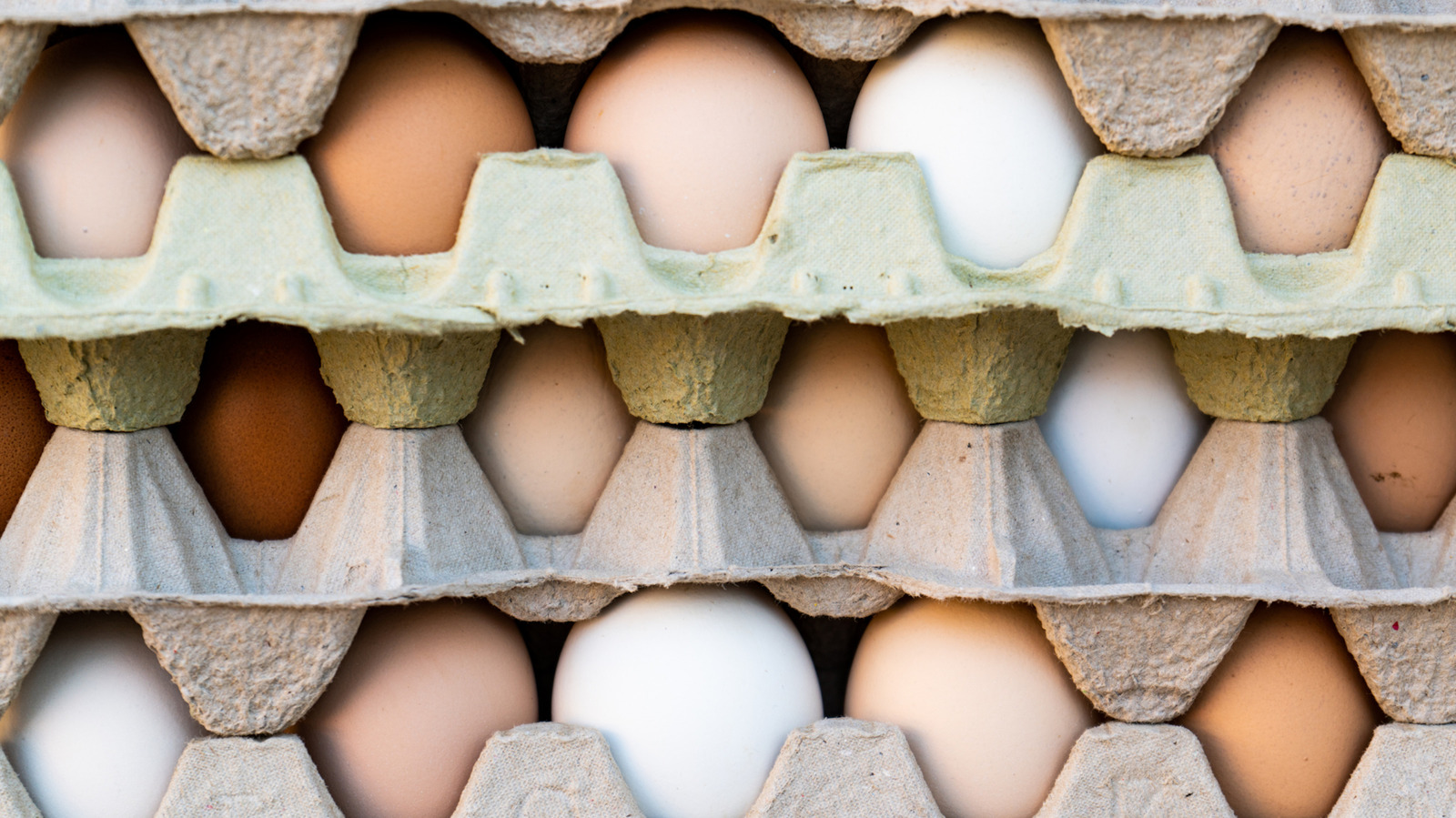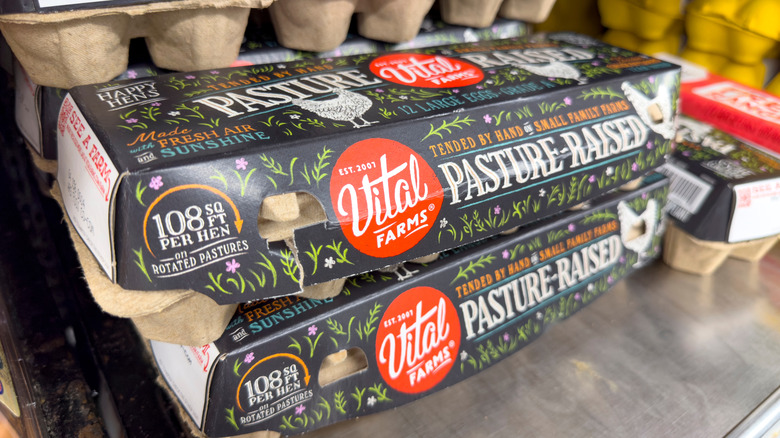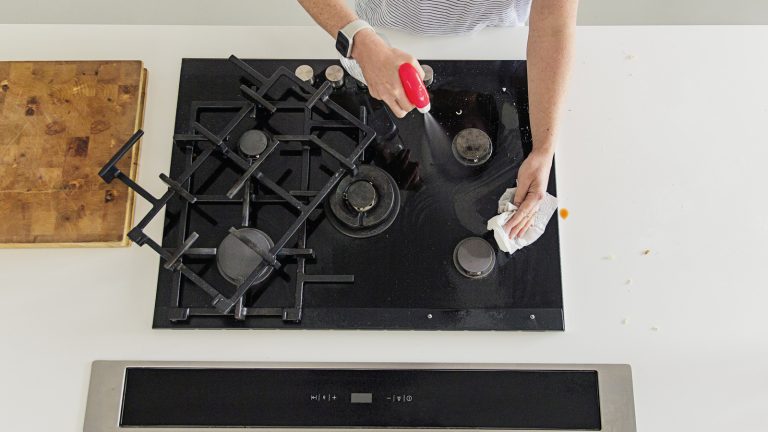If egg prices are having you question whether it is more affordable to just buy chickens, you aren’t alone. According to a CNBC analysis, Americans are spending more on the product than ever before, with prices doubling between 2024 and 2025. While the sticker price of conventional eggs continues to spike, however, the cost of pasture-raised eggs has remained relatively stable. Because of this, some consumers are considering making the switch from regular brands to their slightly more costly counterparts. But the question merits asking: are pasture-raised eggs really worth the hype (and extra money)? To help answer this question, Food Republic spoke to Balance One Supplements dietician Trisha Best, and homesteading expert Lindsey Chastain, founder of The Waddle and Cluck.
“Pasture-raised eggs typically have more vibrant yolks [and] richer flavor,” said Best, “making them worth the hype for dishes where egg quality shines, like poached eggs or custards.” The alternative egg type, however, does not always offer this same quality. When raised using conventional practices, Chastain noted, “Hens often have little room to move and are fed mostly a grain-based diet.” While some conventional producers can label their eggs organic by giving their chickens chemical-free feed, the pasture-raised alternative requires higher standards. Chastain shared, “For pasture-raised eggs, the hens have a pasture to graze on and lots of room to move around and hunt for bugs, dust bathe, scratch and peck.” This difference in lifestyle makes a major impact on the quality of pasture-raised eggs, making them the best eggs you can buy at the grocery store.
How exactly does the quality of pasture-raised eggs differ from conventional eggs?
According to our experts, there are many differences that separate pasture-raised eggs from the conventional type. When it comes to freshness, the traditional egg offering “[has] a shorter shelf life because of the time it takes to get from farm to store and the bloom has been washed off,” homesteading expert Lindsey Chastain shared. The bloom, as she explained, “is a very thin layer of protection over the egg that helps keep it fresh and strong.” While regular eggs are stripped of their bloom in order to be pasteurized, the pasture-raised version remains unwashed with the bloom still in tact. The bloom allows for safe storage outside of the refrigerator, which is why you will likely find pasture-raised eggs hanging out in the pantry or on a countertop.
Additionally, pasture-raised eggs are known to be more nutritious and contains “higher [amounts of] omega-3s, vitamin D, and antioxidants than conventional eggs,” according to registered dietician Trisha Best. Chastain agreed, noting that hens that are allowed to roam outdoors “get lots of sunlight and produce healthier, more nutritional eggs.” What these hens eat while outside is also of major importance, as the diet of pasture-raised hens is more natural, consisting of bugs and vegetation. Over all, both experts agree that pasture-raised eggs are more ethically sourced, nutritious, and well worth the slightly higher cost — especially as conventional egg prices continue to rise.






